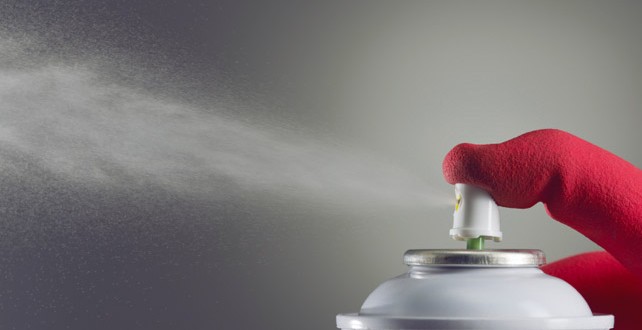Certain pesticides typically used in homes may be linked with a higher risk of blood cancers among children, according to the journal Pediatrics.
Researchers analyzed 16 studies and looked at the effects on children exposed to indoor insecticides, outdoor insecticides and herbicides. Nearly 1,200 children with cancer were included in the studies.
Insecticides are commonly used for pest control and herbicides are used to kill unwanted plants, such as weeds.
“Pesticides are designed and manufactured to kill organisms,” said study author Chenseng Lu, of Harvard T.H. Chan School of Public Health in Boston, MA. “Parents should avoid using these chemicals in the vicinity of their kids.”
Lu said children can be exposed to pesticides by breathing them in or eating them, because chemical residues linger on surfaces where children play or spend time.
Childhood leukemia is the most common cancer in children, and accounts for almost one out of three cancers. Most childhood leukemias are acute lymphocytic leukemia. The symptoms of the illness include tiredness, weakness, headaches, dizziness, feeling cold, having a shortness of breath and pale skin, according to cancer.org.
Researchers found that children exposed to indoor insecticides were 47 percent more likely to be diagnosed with childhood leukemia and 43 percent more likely to have childhood lymphoma than those who weren’t exposed.
Those who had been exposed to herbicides were 26 percent more likely to be diagnosed with childhood leukemia than those who had not been exposed.
However, a link between childhood cancers and outdoor insecticides was not found, according to the research analysis. Lu said this analysis made sense because there isn’t enough fresh air indoors to dilute the chemicals.
Research shows children may be more affected by pesticides than adults due to their immune systems still being developed. Authors of the analysis suggest children’s bodies may be less able to detoxify and excrete pesticides than adults.
The U.S. Environmental Protection Agency shares tips on safe pesticide use. These include removing sources of food and water before spraying, always reading the labels and following instructions, not using more than instructed, wearing gloves and clothing that fully covers the body and removing children, toys and pets from the area until the pesticide has dried.
Lu said childhood cancers are increasing, and there is disagreement about what is contributing to that, but pesticides have always been on the radar.
When determining how insecticides could be causing cancer, it may be that the same ingredients that kill insects causing genetic mutations in blood cells that lead to leukemia and lymphoma, he said.
Children exposed to pesticides also can suffer from toxic effects in their respiratory, gastrointestinal, nervous and endocrine systems.
Genetics, immune system problems, lifestyle-related factors, as well as environmental factors are all risk factors for children developing certain cancers.
Lu said there are not many studies, but they hope that by publishing this analysis it will encourage more scientists to conduct more research.
In August, after a termite fumigation of a home in Florida a 10-year-old boy suffered brain damage.
In March, a Delaware family vacationing on St. John in the U.S. Virgin Islands fell ill after coming in contact with pesticides sprayed in a hotel room near them.
Agencies/Canadajournal
 Canada Journal – News of the World Articles and videos to bring you the biggest Canadian news stories from across the country every day
Canada Journal – News of the World Articles and videos to bring you the biggest Canadian news stories from across the country every day



